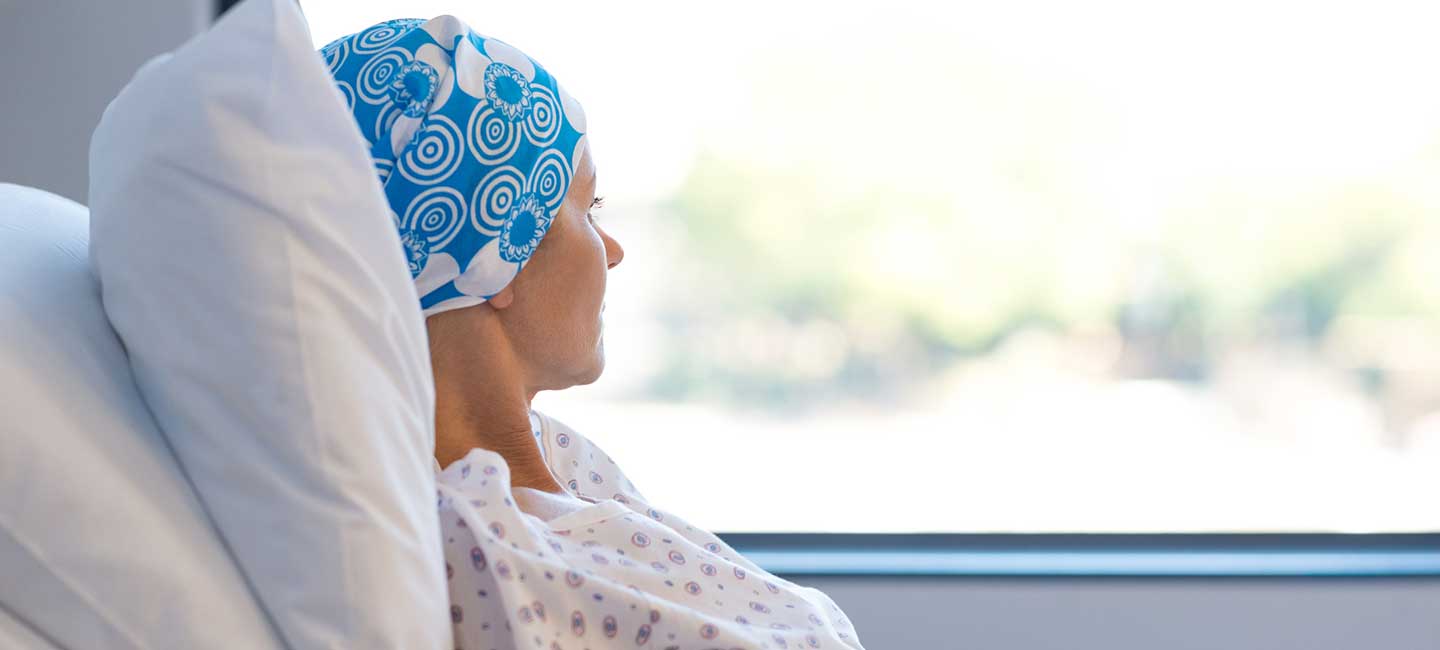How is COVID-19 Taking a Toll on Cancer Patients?
The COVID-19 pandemic has changed the way we live. Social distancing, stay-at-home orders and the economic downturn have added stress to an already difficult situation.
But imagine being a cancer patient.
Cancer patients are at a higher risk for COVID-19 because they are immunocompromised, but they still need routine treatment and medical visits to battle their disease. They already experience psychosocial and financial effects from their disease, but is the pandemic adding to their stress?
Moffitt Cancer Center researchers are hoping to answer that question. Drs. Shelley Tworoger and Erin Siegel have launched a yearlong study investigating the psychosocial effects, such as depression, of COVID-19 on cancer patients.

Dr. Shelley Tworoger, Associate Center Director, Population Science
“We would like to know the immediate and long-lasting effects of this disaster — it is a natural disaster for all intents and purposes — on delays and changes in cancer care and psychological distress, and ultimately its impact on cancer survival and outcomes,” said Tworoger, associate center director of Population Science at Moffitt. “We will track cancer patients over time to get answers directly from them.”
The study will be mostly survey research. Moffitt will reach out to more than 60,000 patients who have been treated at the cancer center in the past five years, a majority of which are also part of the Total Cancer Care Study. They will be asked to fill out an initial questionnaire on their demographics, cancer status, treatment plan and if they have experienced delays in care due to the pandemic. The survey will also ask if they have experienced any symptoms of COVID-19, have tested positive for the virus and if the pandemic has impacted psychosocial aspects of their lives.

Dr. Erin Siegel, Director, Moffitt's Total Cancer Care Study
“We want to know if they are experiencing extra stress and how they are coping with things, such as financial stress or loneliness from social distancing,” said Siegel, director of Moffitt’s Total Cancer Care® Study, a prospective protocol that is open to all Moffitt patients and promotes our understanding of how cancer care can meet all the needs of a patient and their family during the patient’s lifetime.
The study will also give patients an opportunity to report daily on any possible symptoms of COVID-19 and how stressed they feel and complete monthly online surveys that ask questions about other ways their lives have been impacted by the COVID-19 pandemic.
“The goal is to do this while social distancing is still in place and for a while after people are getting back out in the community to get a full picture of the impact of COVID-19 on our patients,” said Tworoger.
Tworoger and Siegel hope to begin their study in early May and say this could inspire additional research.
“If we start seeing patients who are experiencing COVID-19 symptoms or have been diagnosed with the virus, we may want to start collecting blood samples to learn if those patients have built up antibodies to fight the infection, if cancer has hindered that process and also how long those antibodies last in the body,” said Tworoger.
“We also would like to expand our project to enrolling caregivers into a similar study down the road to track how they are affected by the pandemic, and if they experience the same psychosocial effects as the cancer patients they care for,” said Siegel.
Moffitt will help support this study through its newly launched COVID-19 Frontline Response Fund. The fund will help the cancer center’s response to the pandemic through patient support, telemedicine and research. To learn more, you can visit the fund’s website.



